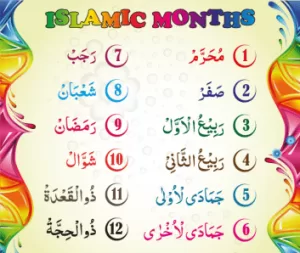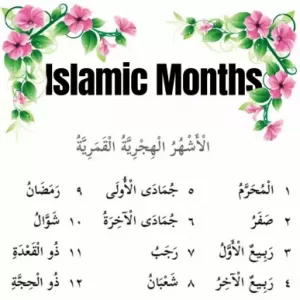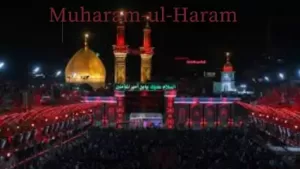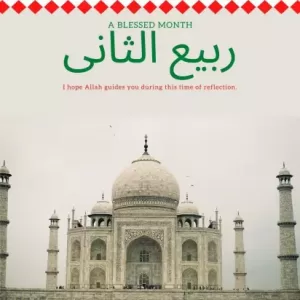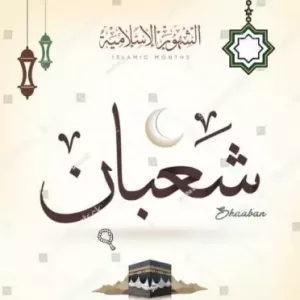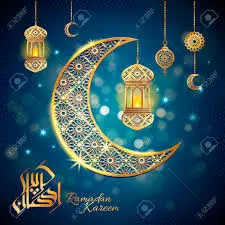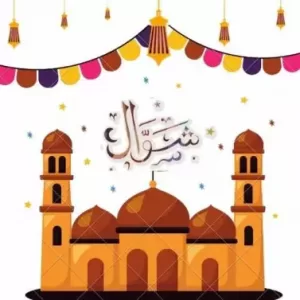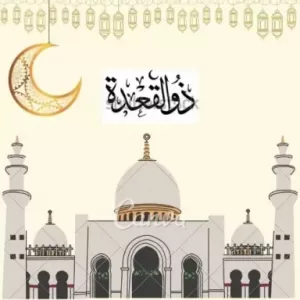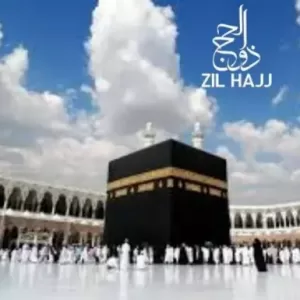The Islamic Months also known as the Hijri, Lunar Hijri, Muslim or Arabic calendar. It is a lunar calendar consisting of 12 lunar months in a year of 354 or 355 days. In this page we discuss Islamic Months | List of Hijri and Gregorian calendar.
Contents
Islamic Months:
The Islamic Months also known as days of Hijri, Lunar Hijri, Muslim or Arabic calendar. It is a lunar calendar consisting of 12 lunar months in a year of 354 or 355 days. It is use to determine proper days of Islamic holidays and rituals. Such as annual period of fasting and proper time for the Hajj. The Islamic calendar employs the Hijri era whose epoch was establish as the Islamic New Year of 622 AD/CE.
Almost, all countries where predominant religion is Islam, civil calendar is the Gregorian calendar. With Syriac month names use in Levant and Mesopotamia. Notable exceptions to this rule are Iran and Afghanistan. Which use the Solar Hijri calendar. Rents, wages and similar regular commitments are generally paid by the civil calendar.
During that year, Muhammad and his followers migrate from Makkah to Medina. Muhammad (S.A.W.W) establish first Muslim community an event commemorate as the Hijra. In the West, dates in this era are usually denote AH in parallel with the Christian, Common and Jewish eras. As of October 2020 CE, the current Islamic year is 1442 AH.
- Muharram-ul-Haram
- Safar
- Rabi-ul-Awal
- Rabi-ul-Sani
- Jamadi-ul-Awal
- Jamadi-ul-Sani
- Rajab
- Shabaan
- Ramadan
- Shawaal
- Zu-al-Qadaah
- Zu-al-Hajj
Islamic Months History:
Muhammad and his followers migrate from Makkah to Medina. Muhammad (S.A.W.W) establish first Muslim community an event commemorate as Hijra. In Muslim countries, it is also sometimes denoted as H from its Arabic form. The Gregorian calendar reckoning, 1442 AH runs from approximately 20 August 2020 to 9 August 2021.
For central Arabia, especially Makkah, there is lack of epigraphical evidence. But details are found in the writings of Muslim authors of the Abbasid era. Inscriptions of ancient South Arabian calendars reveal use of a number of local calendars. At least some of these South Arabian calendars follow lunisolar system. Both Al-Biruni and Al-Masudi suggest that ancient Arabs use same month names. They use as Muslims, though they also record other month names use by the pre-Islamic Arabs.
The Islamic tradition is unanimous in stating arabs. Arabs of Tihamah, Hejaz, and Najd distinguished between two types of months, permit and forbidden months. The forbidden months were four months during which fighting is forbidden. Such as Rajab and three months around pilgrimage season, Dhu al-Qa‘dah, Dhu al-Hijjah and Muharram.
A similar if not identical concept to forbidden months is also attest by Procopius. Where he describes an armistice that Eastern Arabs of Lakhmid-al-Mundhir. Respected for two months in the summer solstice of 541 AD/CE. However, Muslim historians do not link these months to a particular season. The Quran links four forbidden months with Nasi. A word that literally means “postponement”. According to Muslim tradition, decision of postponement was administer by the tribe of Kinanah. By a man known as Al-Qalammas of Kinanah and his descendants.
1. Muharram-ul-Haram:
Muḥarram in Arabic is ٱلْمُحَرَّم. It is the first Month of the Islamic calendar. Muharram is one of the four sacred months of the year when warfare is forbidden. Muslims begin mourning from the first night of Muharram. This months is most respectful for Muslims. Muharram-ul-Haram seek us about Sacrifices and Love for Islam.
It continue for ten nights, climaxing on the 10th of Muharram, known as the Day of Ashura. It’s held to be the second holiest month after Ramaḍān. The Tenth day of Muharram is known as the Day of Ashura. It is well known because of historical significance. Its mourning for the Shahadat of Ḥusayn ibn Ali, grandson of Muhammad.
Muslims mourn the martyrdom of Hassan ibn-e-Ali, Ḥusain ibn-e-Ali and their family. Better known as part of the Mourning of Muharram, Shia Muslims practice partial fasting. Sunni Muslims practice fasting on Ashura. Muharram is celebrate in all the world. Muslims remember the sacrifices the family of PUNJTANPAK.
In the honouring martyrs by prayer and abstinence from joyous events. Shia Muslims fast on the 10th of Muharram but some people don’t eat or drink until Zawal. As a part of their mourning for Husain. In addition there is an important ziyarat book. The Ziyarat Ashura about Husayn ibn Ali. In the Shia sect, it is popular to read this ziyarat on this date. Many Sahaba shaheed for Islam in this Month.
2. Safar:
Ṣafar is the second month of the lunar base Islamic calendar. Arabic word ṣafar means “empty, vacate or void”, corresponding to pre Islamic Arabian time period. When people’s houses were empty as they were out gathering food. Ṣafar also means “hiss, toot or whistle”. Even “whistling of the wind” as this was likely a windy time of the year.
Safar was called so because people in the Age of Ignorance. Shia Muslims left their homes empty in this month. Because it was after the month of Muharram. Which was a haram month in which people stopp battles and expeditions. But in the Safar they restart their battles once again and leaving their houses empty.
Most of the Islamic Months are name according to weather conditions of the time. However, since the calendar is lunar. The months shift about 11 days every year, meaning that seasons do not necessarily correspond to name of month. Just like the month of Muharram, this month is also a month of grief for Twelver Shiite Muslims.
According to some sources, the Prophet (S.A.W.W) has said about the month of Safar that “Whoever gives me the good news that the month of Safar has ended. I will give him good news of going to heaven”. This hadith does not have a reliable chain of narrators. It is probably about Abu Dhar al-Ghifari. The demise of the Prophet Muhammad (S.A.W.W), the martyrdom of Imam-ul-Hasan-al-Mujtaba (A.S) and Imam-Al-Rida (A.S). As well as Imam-al-Husayn (A.S)’s Arbain occurr in this month.
3. Rabi-ul-Awal:
Rabi-ul-Awwal is third month in Islamic calendar. The name Rabi-ul-awwal means “first or beginning of spring”. It referring to its position in the pre Islamic Arabian calendar. This month is also most respectfull love for Muslims. Muslims respect this month beacause of their Last Prophet (S.A.W.W).
The word “Rabi” means “spring” and Al-awal means “the first” in Arabic language. so “Rabi-ul-awwal” means “The first spring” in Arabic language. The name seems to have to do with the celebration events in the month as “spring” is the end to winter. Rabi-ul-Awal consequently celebrate in the start of happiness. The Arabic calendar being lunar calendar, the month is naturally rotating over years. Rabi-ul-awal can be in spring or any other season every now and then. So the meaning can not be relate to the actual season.
During this month, majority of Muslims celebrate MILAD-UN-NABI. It is the birthday of the Islamic prophet Hazrat Muhammad (S.A.W.W). Other Muslims do not believe the celebration is evidence as necessary or even Islamically permissable in the Quran. Nor in authentic Hadith has evolve as an innovation. Although the exact date of the Mawlid is unknown. The Islamic Months also known as days of Hijri, Lunar Hijri, Muslim or Arabic calendar
Sunni Muslims believe the date of birth of Muhammad to have been on the twelfth of this month. Whereas Shia Muslims believe him to have been born on the dawn of seventeenth day. In the Ottoman Empire days, the name of this month in Ottoman Turkish was “Rebiülevvel”. With the abbreviation Ra. In modern Turkish it is Rebiülevvel.
4. Rabi-ul-Sani:
Rabi-ul-Sani also known as Rabi-ul-Akhir and Rabi-ul-Thani. It is the fourth month in Islamic calendar. In the Ottoman Empire days, name of this month in Ottoman Turkish was Rèbi-ul-aher. With Turkish abbreviation Rè or Reb-ul-Akh in western European languages. In modern Turkish it is Rebiülahir or Rebiülsani.
The Islamic calendar is a lunar calendar. Months begin when the first crescent of a new moon is sight. Since the Islamic lunar calendar year is 11 to 12 days shorter than the tropical year. Rabi-ul-Sani migrates throughout the seasons. The estimated start and end dates for Rabi-ul-Sani are as follows base on the Umm-ul-Qura calendar of Saudi Arabia. Rabi-ul-Sani is precious because of the following reasons:-
- Hazrat Imam Malik (r.a.) veiled in the month of Rabi-ul-Sani.
One of the magnificent saints of Silsila Chistia Hazrat Syed Khawjha Nizam uddin Aulia (r.a.) veil from this materialistic world in this holy month. Pira Ne Pire Dastagire Hazrat Sheikh Abdul Qadir Jilani Ghous-e-samdani Qutab-e-Rabani (r.a.) popularly known as Ghouse Pak. He also veil from this materialistic world in the month of Rabi-ul-Sani. Because of this precious reason this month is called as Ghouse Pak month.
Mostly much of prayers are given in Wazaifs. But some of most momentous prayers for this pious month which are grant by Hazrat Bawa Tajuddin Aulia (r.a.) are as follows:- “The Holy Quran must be recite daily. Mostly the Wirde of Istagfar. Extra Nawafil must be pray for the Raza of Allah Almighty. The recitation of Surrah Fatiha, Maryam, Muzammil, Taha and Ayatal Kursi should be done. Usually, the Wirde of Daruud Sharif.
5. Jamadi-ul-Awal:
Jumadi-ul-Awal in Arabic is جُمَادَىٰ ٱلْأَوَّل. It also known as Jumada-ul-Ula or Jumada Ⅰ. This is the fifth month of 12 lunar months in the Islamic calendar. The month spans 29 or 30 days. The origin of the name is theorize by some as from the word jamad. Jamad meaning “arid, dry or rainless”. It denoting the dry and parched land hence dry months. The secondary name Jumada-ul-Ula may possibly mean “to take charge with commend, entrust, commit or care during the arid month”.
However, this is reject by some as it is a lunar month. Which does not coincide with seasons as solars months do. In Ottoman Turkish used in Ottoman Empire, name was Jèmāzìyyu-ul-èvvel or G̃émazi lèlèvvèl. In Turkish it was abbreviated Ja or Ga In Turkish today the spelling is Cemaziyelevvel.
Events occurred in the Month of Jumada:
- The Moota battle
- Marriage of Muhammad SAW with Hazrat Khadija.
- Hazrat e Jafar’s RA Martyrdom
- Abdullah RA Martyrdom
- Abdul Muttalib’s death.
- Birth of Zainab bint Ali RA, 5th Jamadi ul Awwal
- Fatima RA Bint Muhammad SAW was died at age of 23 on 10th of Jamadi ul Awwal
- Burriel of Fatima RA Bint Muhammad SAW was conducted by Hazrat e Ali RA on 13th of Jamad ul Awwal.
- The birth date of Zain Al Abideen RA is on 15th of Jamad ul Awwal
Umar ibn-al-Khattab (R.A) was the first who initiate the Islamic calendar. It was 638 A.D. The name Hijrah was decide at that time with the consultation of all others at the time of Umar (R.A). Jumadi-ul-Awwal can also be written as Jumada-al-Ula, Jumada 1. ‘Jamad’ stands for “Arid, dry or rainless” denoting dry months. The meaning may be “to take charge with, commend, commit or care during this month”.
6. Jamadi-ul-Sani:
Jamadi-ul-Sani also known as Jumada-ul-Akhirah or Jumada al-Akhir. It is sixth month in the Islamic Calendar. The word Jumda from which name of the month is derive. It is use to denote dry parch land, a land devoid of rain and hence denote dry months. The Hijri calendar has a great significance in Gulf countries and especially in Saudi Arabia. It also include in Islamic Months.
In Turkish, use in Ottoman Empire times and context. It was Jèmāzìyyu-‘l-ākhir or G̃emazi-yèl-Aher. Its Turkish abbreviation was jìm and its Latin abbreviation was Djem. This is also spelled Cümadelahir. The modern Turkish spellings are Cemaziyelahir and Cemaziyelsani. Since the Islamic lunar calendar year is 11 to 12 days shorter than the solar year.
However, it is utilize as the official calendar in muslims countries. However, other Muslim countries usually go with a Gregorian calendar for civil purposes but they use the Islamic calendar for religious purposes. Jumadi-ul-Sani migrates throughout the seasons.
On the other side, moon sighting plays a key role in determination of Hijri calendar dates. However, actual visibility of new crescent is hardly to predict as it depends on different factors. Such as the location of the observer, atmosphere’s optical properties, weather, etc. It is a reason that Muslims depend on local and regional authorities.
7. Rajab:
Rajab is seventh month of the Islamic calendar. It also include in Islamic Months. The lexical definition of classical Arabic verb rajaba is “to respect”. Which could also mean “be awe or be in fear” of which Rajab is a derivative. This month is regard as one of four sacred months in Islam in which battles are prohibit. The pre Islamic Arabs also consider warfare blasphemous during the four months.
“Praise be to God Who has enraptured His servant by night from the Sacred Mosque (Mecca) to the Farthest Mosque (Jerusalem).” (17:1)
Muslims believe Rajab is the month in which Ali Ibn-e-AbiTalib the first Imam of Shia Muslims and fourth Caliph of Sunni Muslims was born. Rajab is also month during which Isra-Miraj of the Islamic prophet Muhammad took place. Rajab and Shaban are a prelude to the holy month of Ramaḍān.
The Islamic calendar is a lunar calendar. Its months begin when the first crescent of a new moon is sight. Since the lunar year is 11 to 12 days shorter than the solar year. It also include in Islamic Months. Rajab migrates throughout the seasons. The estimate start and end dates for Rajab. It based on the Umm-al-Qura calendar of Saudi Arabia.
“Undoubtedly, the number of months with Allah is twelve in the Book of Allah since the day He created heavens and the earth. Four of them are sacred. This is the right religion. Therefore, do not wrong yourselves in these months.” (9:36)
RECOMMENDED ACTS OF WORSHIP IN RAJAB:
As we go through the Quran and Sunnah (Islamic traditions of the Prophet), we are shown to respect what Allah and the Prophet of Allah have honored.
8. Shaban:
Shaʽban is the eighth month of the Islamic calendar. It is the month of “separation”. So called because the pagan Arabs use to disperse in search of water. The fifteenth night of this month is known as the “Night of Records” or “Laylat-al-Baraat“. However, observance of this day is dispute.
Shaban is the last lunar month before Ramadan. So Muslims determine in it when the first day of Ramadan fasting will be. In the Tanzimat Ottoman Empire context, the word was, in French. The main language of diplomacy and a common language among educate and among non-Muslim subjects, spelled as Chaban. The current Turkish spelling today is Saban.
Shaban acts as a connection between two bless and sacred months of Rajab and Ramadan. It also include in Islamic Months. The Holy Prophet (S.A.W) said, “ Shaban is my month. Shaban cleanses the sins.” Prophet Muhammad (SAW) mention in one of His Hadith about blessings of 15th Shaban night. During the night of 15th of Shaban Allah will say:
“is there any person repenting so that I forgive him, and any person seeking provision so that I provide for him, and any person with distress so that I relieve him, and so on until dawn” (Ibn Majah).
This night should be spent in worship and total submission to Allah Almighty as much as possible. Moreover, Fasting in the month of Shaban gives you a chance to start preparing for the month of Ramadan. Shaban is considere one of the virtuous months for which we find particular instructions in the Sunnah of Prophet Muhammad (SAW).
9. Ramadan:
Ramadan also spelled Ramazan, Ramzan, Ramadhan or Ramathan. It is the ninth Islamic Month of the Islamic calendar. It observe by Muslims worldwide as a month of fasting, prayer, reflection and community. A commemoration of Muhammad’s first revelation. Also the annual observance of Ramadan is regard as one of the Five Pillars of Islam. Lasts twenty nine to thirty days from one sighting of the crescent moon to the next. The Quran states:
“The month of Ramadhan in which was reveal the Qur’an. Guidance for people and clear proofs of guidance and criterion. So, whoever sights month, let him fast it.”
Fasting from sunrise to sunset is fard for all adult Muslims. Who are not acutely or chronically ill, travelling, elderly, breastfeeding, diabetic or menstruating. The predawn meal is refer to as suhur and nightly feast that breaks fast is called iftar. Although fatwas have been issue declaring that Muslims. Who live in regions with midnight sun or polar night should follow the timetable of Makkah.
The spiritual rewards of fasting are believe to be multiply during Ramadan. Accordingly, Muslims refrain not only from food and drink. But also tobacco products, relations and sinful behavior. They devoting themselves instead to salat and recitation of the Quran. It is common practice to follow timetable of closest country in which night can be distinguish from day.
Ramadan is celebrate as the month during which Muhammad received initial revelations of what became the Quran. The holy book for Muslims from God. Ramadan is a time to practice self-restraint and self-reflection. God forgives past sins of those who observe holy month with fasting, prayer and faithful intention.
10. Shawaal:
Shawaal is the tenth month of the lunar based Islamic calendar. Shawal stems from verb shāla to ‘lift or carry’. Generally to take or move things from one place to another. So name because a female camel normally would be carrying a fetus at this time of year. “So compete in good deeds.” (Al-Qur’an 5:48)
The first day of Shawaal is Eid al-Fitr. Some Muslims observe six days of fasting during Shawaal beginning day after Eid ul-Fitr since fasting is prohibit on this day. These six days of fasting together with the Ramadan fasts. They are equivalent to fasting all year round. “And march forth in the way (which leads to) forgiveness from your Lord.” (Al-Qur’an 3:133)
The reasoning behind this tradition is that a good deed in Islam is reward 10 times. Hence fasting 30 days during Ramadan and 6 days. During Shawaal is equivalent to fasting whole year in fulfillment of the obligation. The Shia scholars do not place any emphasis on six days being consecutive. While among Sunnis majority of Shafii scholars consider it recommend to fast these days consecutively.
They base this on a hadith relate by Tabarani. Others wherein Muhammad is report to have said, “Fasting six consecutive days after Eid al-Fitr is like fasting the entire year.” Other traditional scholarly sources among Hanafiyya and Hanbaliyya do not place an emphasis on consecutive days. While strongest opinion of Malikiyya prefers any six days of month, consecutively or otherwise.
Shawaal also include in Islamic Months. If a person seeks reward from Allah and strives to obey Him. His reward will not be lost. As Allah says interpretation of the meaning:
“We shall not make the reward of anyone who does his (righteous) deeds in the most perfect manner to be lost.”
11. Zu-al-Qadaah:
Dhu al-Qa’dah has also spelled Dhu-al-Qidah or Zu-al-Qadah. It is the eleventh month in Islamic calendar. It could possibly mean “possessor or owner of the sitting and seating place”. The space occupy while sitting or the manner of the sitting, pose or posture. It is one of the four sacred months in Islam. During which warfare is prohibit hence the name “Master of Truces”.
In the Ottoman Empire times, name in Ottoman Turkish was Zil-kade abbreviation Za. In modern Turkish it is Zilkade. The most correct and most traditionally widespread transliteration of month according to thirteenth century Syrian jurist al-Nawawi is Dhul Qadah. Allah commands us not to ‘wrong ourselves’ during Dhul Qadah. Which means we should be extra careful about fulfilling our obligations. We not falling into sin.
Al-Nawawi also mentions that a smaller group of linguists allow transliteration Dhul-Qidah. In modern times, it is most commonly referred to as Dhul Qidah. Although this is neither linguistically nor historically strongest position. It is important to respect the month which Allah has chosen to be sacred, for reasons He knows best.
It also include in Islamic Months. The four sacred months of Islam are Muharram, Rajab, Dhul Qa’dah and Dhul Hijjah. Thus, Dhul Qadah is an elite month simply because Allah has chosen it to be so. As He says in the Qur’an:
‘And your Lord creates what He wills and chooses, not for them was the choice. Exalted is Allah and high above what they associate with Him’. [Qur’an, 28:68]
12. Zu-al-Hajj:
Dhu al-Hijjah also called Ḏu-al-Ḥijjah. Their also spelled Zu al-Hijjah. It is the twelfth and final month in Islamic calendar. It is a very sacred month in Islamic calendar. One in which the Ḥajj takes place as well as the Festival of the Sacrifice. “Dhu al-Hijjah” literally means “Possessor of the Pilgrimage” or “The Month of the Pilgrimage”.
During this month Muslim pilgrims from all around world congregate at Makkah to visit Kaaba. The Hajj is perform on eighth, ninth and tenth of this month. Day of Arafah takes place on ninth of month. Eid-al-Adha, the “Festival of the Sacrifice” begins on tenth day and ends on sunset of 13th. The name in Ottoman Turkish was Zi-l-Hìjje or Zil-higge. In modern Turkish name is “Zilhicce”.
The first ten days of Dhul Hijjah are often refer to as best ten days of year. It also include in Islamic Months. The Prophet (S.A.W.W) said: “There are no days on which righteous deeds are more beloved to Allah than these ten days.” [Bukhari]
Here are some tips so we can all make the most of these blessed days:
- Read the Quran
- Increase in Nawaafil Prayers
- Make lots of dhikr
- Istighfaar
- Fasting
- Give in charity
- Preserve ties of kinship
Many historic commentators on the Quran believe these verses specifically relate to the first ten days of Dhu al-Hijjah. In Islam, virtuous deeds are magnified during this period. The Prophet Muhammad is documented to have said:
“There are no days on which righteous deeds are more beloved to Allah (God) than these ten days.”
CONCLUSION:
The Islamic Months also known as days of Hijri, Lunar Hijri, Muslim or Arabic calendar. It is a lunar calendar consisting of 12 lunar months in a year of 354 or 355 days. Muslims celebrate their muslims festivals and events according to the Islamic Month’s Calendar. It is use to determine the proper days of Islamic holidays and rituals.
